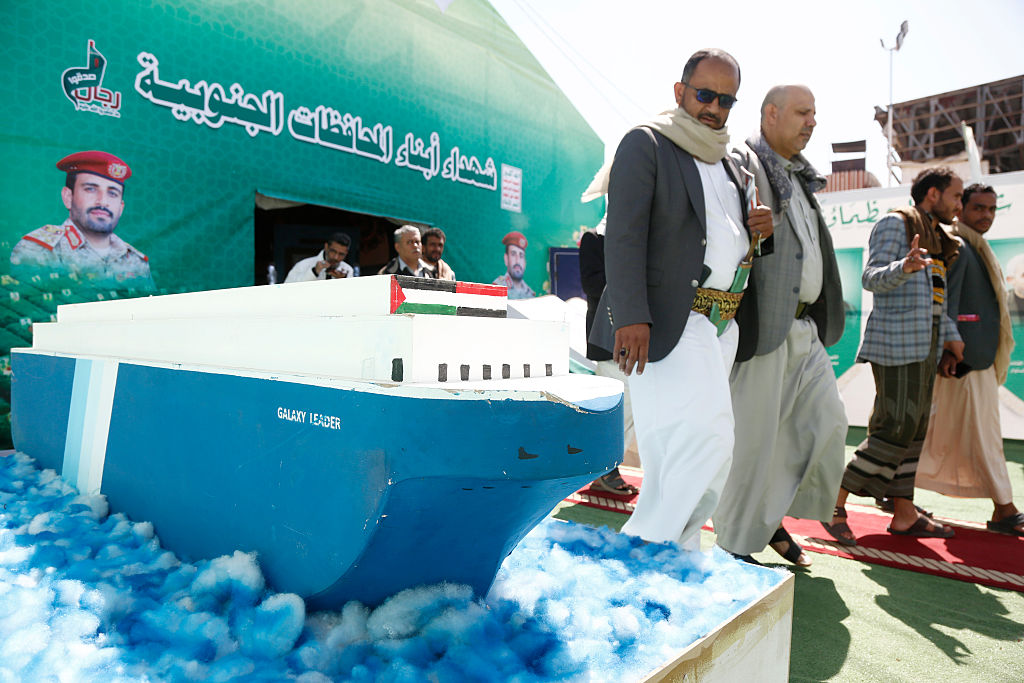A United Nations expert panel has released a report showing that Yemen’s Houthi rebels and al-Shabaab terrorists have exchanged intelligence, trafficked weapons and cooperated on military operations.
The October 17, 2025, Security Council report from the Panel of Experts on Yemen notes that cooperation between Yemen-based Houthi rebels and Somalia’s al-Shabaab has intensified. “The cooperation with Al-Shabaab is not simply for transactional benefits; it is also part of a Houthi strategy to wield increasing influence in the region,” the report states.
The Houthis emerged in the 1990s under the name Ansar Allah, which means “Partisans of God.” They represent the Zaidis, a sect of Yemen’s Shia Muslim minority, and declare themselves to be part of Iran’s “axis of resistance.”
The group gained global notoriety when it started attacking commercial shipping in the Red Sea. Despite false narratives that Houthis use for attacking ships, experts agree that the true reason is to galvanize domestic support in a country that’s essentially in chaos.
Even so, Houthi attacks have wreaked havoc on global shipping by imperiling passage through two vital Red Sea chokepoints: the Suez Canal in the north and the Bab el-Mandeb strait in the south. Since September 2024, the U.N. report states, Houthis have attacked at least 25 commercial vessels in the Gulf of Aden and Red Sea using missiles, drones and rocket-propelled grenades.
Houthis sank the Liberian-flagged and Greek-managed carriers MV Magic Seas and MV Eternity C in separate July 2025 incidents, the U.N. said. The ongoing threat has prompted detours around Africa’s Cape of Good Hope, which adds time and distance that have nearly quadrupled per-container costs from 2023 to 2024.
Joint efforts between the Houthis and al-Shabaab have intensified recently. “That cooperation involves weapons smuggling, technical training, including in relation to operational tactics, and exchange of logistical support,” the U.N. report stated.
Dealings with al-Shabaab, the report says, is “part of a Houthi strategy to wield increasing influence in the region.” Somali sources indicate that they have detected interactions between the Houthis, al-Shabaab and the Islamic State group in Somalia. The nation’s security forces also have seized explosives and drones shipped from Yemen to Somalia and arrested arms traffickers.
Confidential sources also told the U.N. panel that the Houthis are training al-Shabaab members in drone technology and how to manufacture sophisticated improvised explosive devices (IEDs). Al-Shabaab already uses drones for surveillance. The Houthis can show the terrorist group how to use the technology for attacks, the report states.
“The division of labor is clear. Houthis provide advanced weaponry with Iranian backing. Al-Shabaab escalates piracy and battlefield pressure in Somalia. Together they amplify each other’s reach,” said retired U.S. Navy Rear Adm. Paul Becker and policy analyst Jonah Brody in an October 2, 2025, paper for the website RealClear Defense.
Al-Shabaab’s support of regional piracy “strengthens the Houthis’ ability to threaten maritime traffic in the region while deepening their leverage vis-à-vis the United Nations-backed government in Yemen,” according to a May 28, 2025, Africa Center for Strategic Studies report.
Al-Shabaab’s East African networks help the Houthis funnel arms shipments from Iran and elsewhere out of the Indian Ocean and into Yemen, according to the Africa Center.
The arrangement helps al-Shabaab be even more lethal. The Somali terrorists have for years leveraged IEDs, weapons thefts and smuggling to keep themselves armed. Working with the Houthis, however, makes advanced arms, including weaponized drones, available.
“I think where we are now is that the Houthis have become sufficiently powerful that they see themselves as a hegemon, and that they see potential partners and allies in the form of al-Shabaab, al-Qaeda and others,” Ian Ralby, chief executive officer of the security consultancy I.R. Consilium, told Lloyd’s List in November.
“And so what we may start to see are essentially upsurges of other militant activity, including piracy as almost a proxy, [in] the way that the Houthis have been considered proxies for Iran,” Ralby said.
Degrading the threat posed by the Houthis and al-Shabaab must go beyond maritime action, the Africa Center said. “Sustained efforts to reduce each group’s territorial control will also be needed as these land bases have provided the platforms from which the nonstate actors have been able to launch attacks at sea, expand their revenue flows, and build their military capacity.”

